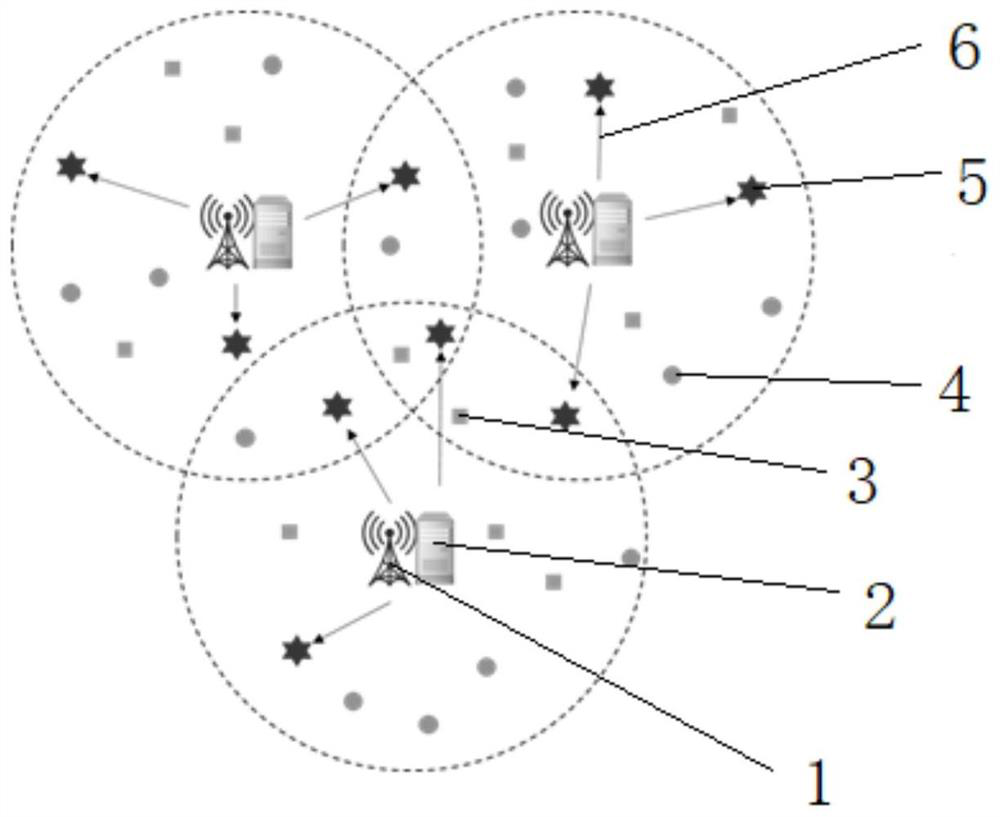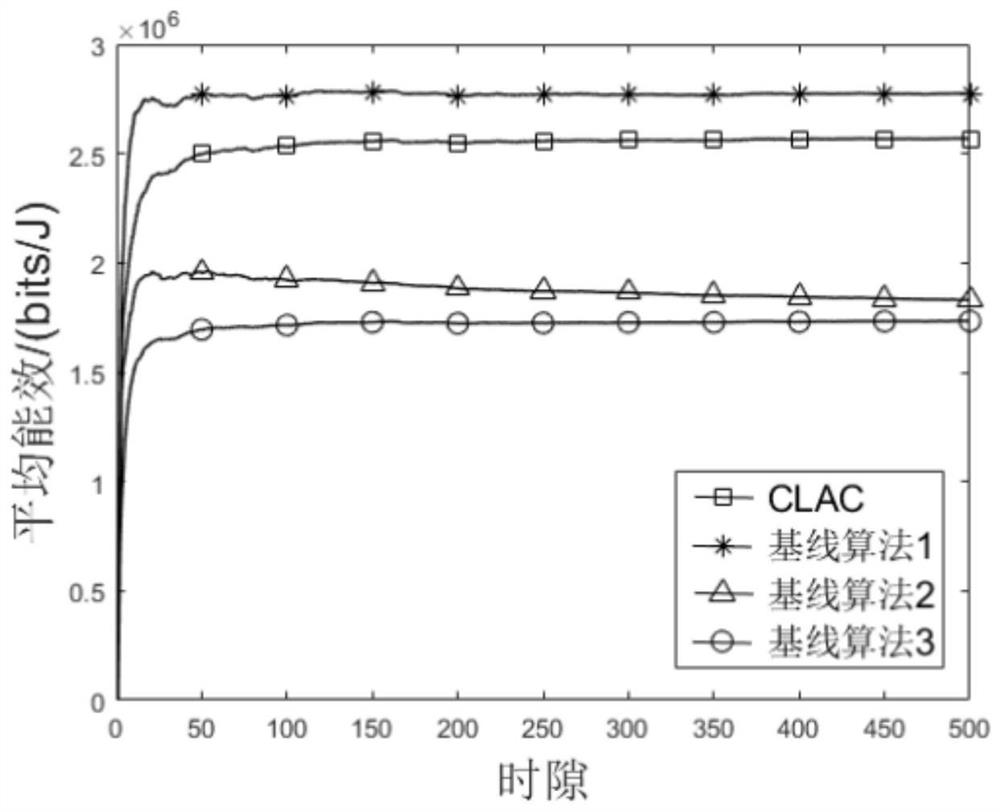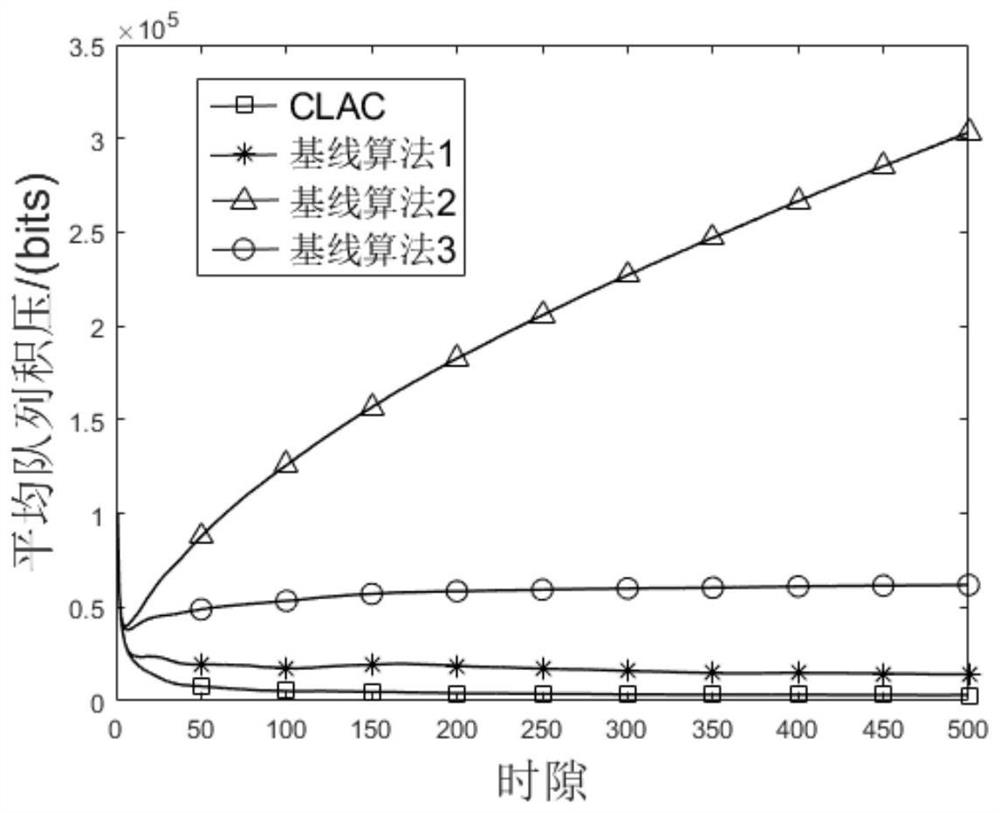A method for access control of massive terminals in electric power Internet of Things based on context learning
A technology for power Internet of Things and terminal access, applied in access restrictions, electrical components, advanced technologies, etc., can solve the problem that base stations cannot accurately obtain all information of massive terminals, and achieve the effect of ensuring access performance and avoiding waste of resources
- Summary
- Abstract
- Description
- Claims
- Application Information
AI Technical Summary
Problems solved by technology
Method used
Image
Examples
Embodiment Construction
[0080] The present invention will be further described below according to specific embodiments.
[0081] As shown in Algorithm 1, the CLAC algorithm proposed by the present invention includes three stages: initialization stage (lines 2-3), decision stage (lines 5-15) and learning stage (lines 16-30).
[0082] Algorithm 1 CLAC Algorithm
[0083]
[0084]
[0085] The present invention has carried out simulation experiment to above-mentioned proposed CLAC algorithm, and has set three baseline algorithms and carried out the comparative verification of performance, and baseline algorithm is set as follows:
[0086] Baseline Algorithm 1: Energy Efficiency Priority Access Control Algorithm, which maximizes the total energy efficiency of the network based on the terminal state prediction algorithm, without considering the long-term constraints of access quality of service requirements.
[0087] Baseline Algorithm 2: An access control algorithm based on reinforcement learning, ...
PUM
 Login to View More
Login to View More Abstract
Description
Claims
Application Information
 Login to View More
Login to View More - R&D
- Intellectual Property
- Life Sciences
- Materials
- Tech Scout
- Unparalleled Data Quality
- Higher Quality Content
- 60% Fewer Hallucinations
Browse by: Latest US Patents, China's latest patents, Technical Efficacy Thesaurus, Application Domain, Technology Topic, Popular Technical Reports.
© 2025 PatSnap. All rights reserved.Legal|Privacy policy|Modern Slavery Act Transparency Statement|Sitemap|About US| Contact US: help@patsnap.com



